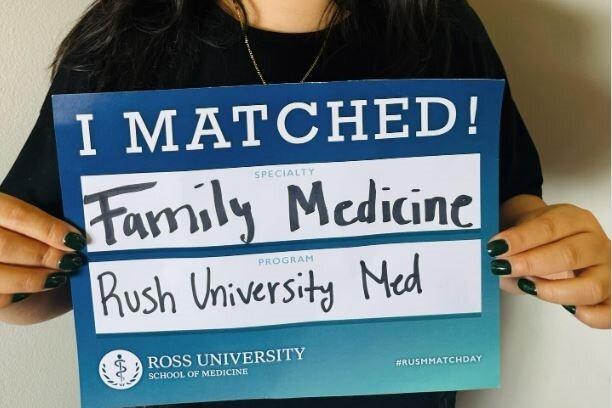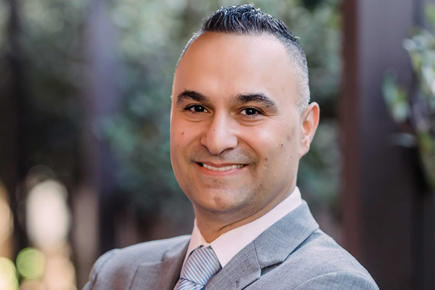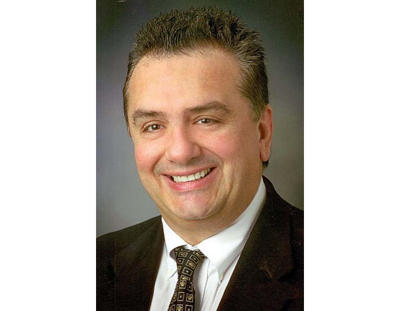So here’s a tip from someone who’s actually sat on the recruitment side. Steve Angus (Ross Class of 1997) has interviewed more than 5,000 prospective residents for entry to the internal medicine program at UConn Health in Farmington, CT, and he tells them all the same thing: Trust your instincts. When you find the program that’s right for you, you’ll know it.
“I still remind medical students who I interview today—though you’ll undoubtedly have an Excel spreadsheet with the programs you’re looking at, and you’ll be making this a very cerebral decision—that it’s ultimately more of a gut feeling,” says Angus, who was recently named the designated institutional official (DIO) at UConn. “You go from place to place, meeting different people, seeing how the residents interact with patients and staff, and you develop an instinct.”
That instinct, that gut feeling, is a major part of what helps you predict where you’ll fit in the best.
“I tell all of my applicants that they’ll know where they want to be, and no one’s told me that I’ve been wrong yet,” he said, laughing.
The Proverbial Lightbulb
Falling into the role of a mentor, an advisor, comes naturally to Angus. For the last several years of his professional life, Angus has worn two hats: one when he’s actively seeing and treating patients, and the other when he’s coaching and mentoring residents as director of UConn’s internal medicine program. He’s swapped that second hat for the DIO position, in which he’s charged with having “oversight of all of the residencies and fellowships across the UConn system.” That’s more than 50 training programs and roughly 650 trainees, and it’s his job to ensure those programs are maintaining and upholding accreditation standards set by the Accreditation Council for Graduate Medical Education.
He enjoys it all. But ask him to choose what gives him the most gratification on a personal level, and he’ll probably pick teaching or mentoring every time.
“Certainly, taking care of patients and making them better is a wonderful feeling,” said Angus, “but showing others how to do that—and being present when the proverbial lightbulb goes off for them when they put the pieces together—is something that I find incredibly rewarding.”
On Residency: Tiring, But Immensely Rewarding
It’s probably fitting that Angus discovered his love for teaching during his internal medicine residency, which he completed at University of Connecticut School of Medicine. As a chief resident, he spent most of that final year developing teaching skills and assisting junior residents. Contrast that with his earlier residency years: those were spent learning how to navigate the world after medical school.
Challenging, to be sure, but also completely worth it.
“I don’t think you can be fully prepared for your internship—it’s a tremendous learning experience,” he said. “The hours are sometimes grueling. Tiring, no doubt. But rewarding? Absolutely. This is where you grow as a physician. This is where you learn.”
He earned the residency program director spot in 2005, less than a decade after completing his own training. “It wasn’t all that long ago, but it feels like forever now,” he said. Angus never forgot his roots—UConn, he says, has an “outstanding” track record with inviting graduates of Ross and other Caribbean medical schools to train there. As an added bonus, he enjoys swapping stories with other Ross graduates—and often reminds them their medical and clinical training is all the preparation they’ll need to thrive in residency.
A Familiar Story
How did Ross come up as an option, anyway? His story, Angus says, probably isn’t all that different from students and graduates who take the Caribbean medical school route. He applied to medical schools in the US, was waitlisted (to this day, he never got a firm answer as to why, but he guesses it was due at least in part to supply and demand) and was faced with a crossroads: should he wait to see if his name came off one of those waitlists, or get started on his medical education using the options available to him?
Talking to a Ross student cemented it for him. Angus knew a local physician who had a daughter at Ross—the two got in touch. “I called down to the island, spoke with her, and she told me what a great experience she was having,” he said. “It was talking to people who were there, and had been there, that made me realize that you can get where you want to go through Ross.”



